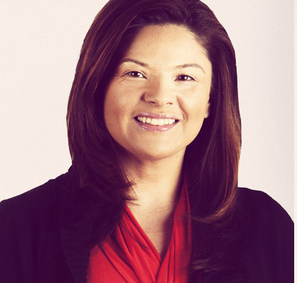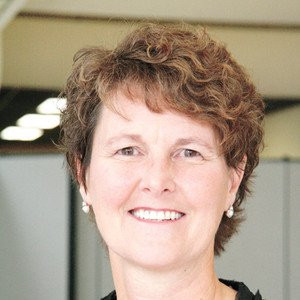Six Tips for Helping Complex Learners Manage Routines
Thursday, October 29, 2015
Most of us have a host of routines we follow throughout the day. You probably wake up around the same time on weekdays. Maybe you prefer to skip breakfast or you always have oatmeal. You might have a standing meeting on Tuesdays or go to the gym after work. At the end of the night you read in bed or you’re someone who falls asleep watching the news.
Whatever the case, you understand the structure of your days and these routines are second nature. You don’t have to put a lot of thought into how things will go.
But imagine if you did have to think about it. Imagine if every day you weren’t sure what to do first. Should I brush my teeth or make toast? Should I find something to wear or make my bed? Do I need these papers for work? Am I supposed to be somewhere early today?
GET THE LATEST BREAKING NEWS HERE -- SIGN UP FOR GOLOCAL FREE DAILY EBLASTSuddenly your world would become confusing and hard to manage. Everything would require a decision, and every decision might feel like the wrong one. The whole process would overwhelm you and before you even got out the door you’d be exhausted.
Welcome to the world of a Complex Learner. As individuals who can be anxious, distracted, or rigid, Complex Learners are especially in need of routine to make their lives predictable and safe. At the same time, their interferences to learning get in the way of establishing and maintaining this structure. Here are a few ways parents and teachers can help:
1) Create a predictable schedule. This seems obvious but it’s something that needs to be clearly communicated and consistently implemented. Have set times for waking up, leaving the house for school, homework, dinner, and bedtime. Schedule video game time, chores, quiet time, or whatever other activities happen regularly for your child. A daily schedule in school that clearly spells out class subjects, transitions, what happens when and what teachers the student will be working with makes for a smoother day.
2) Establish the plan. The steps necessary to complete a task or activity aren’t always obvious to Complex Learners. By breaking things down and letting kids know what comes first, second, third, and so on, you help create a manageable routine. Depending on the age of the child, this could include anything from brushing your teeth, transitioning to another classroom in school, packing a back pack, cleaning the bedroom, going to dinner at a restaurant, attending soccer practice, managing a play date or tackling homework.
3) Preview. This is such an easy thing to do and it makes a big difference for Complex Learners. By going over what is going to happen before it happens, kids get a chance to process things without the pressure of carrying out the plan. This takes away the anxiety of a new situation. It also shows that we’re all in this together and everyone is on the same page. For example, if you preview a visit from grandparents you would let a child know when they were arriving, what you were going to do during the visit, any behaviors or issues you anticipate, and when they are going to leave. In school you might preview field trips, class visitors, or picture day so students have a good understanding of what is going to happen and what is expected of them.
4) Use visual supports. This could be anything from a central calendar that the whole family uses, to a daily schedule written out and posted in your child’s room. Creating a checklist with each step of a routine spelled out makes tasks less daunting and allows kids to focus their mental energy on achieving the goal. This could be for a block of time (e.g., what has to happen during the morning routine) or for a specific activity (e.g., steps involved in brushing your teeth or what goes in your backpack to bring to school). Depending on your child’s age and learning preferences, these lists can be written or can be created using pictures. It also helps to carry a small white board with you to write or draw out expectations on the go or if something new comes up.
5) Timing is everything. Most Complex Learners have a poor sense of time and sequencing. It may take them an extraordinarily long time to get dressed or they may have no understanding of how long a homework assignment will take. Using timers and clocks is a great way to help kids learn how long tasks should take and helps set limits. A particularly helpful tool is a Time Timer. This clock uses a red disk to show the passage of time in a visual way. It can be extremely helpful for home, school, in the car and on vacation. Time Timers come in a variety of sizes to fit a variety of needs. You can find their products at www.timetimer.com.
6) Teach Flexibility. It’s important to balance the need for following set routines with the ability to adapt to change. Not everything is predictable and flexibility is a skill that Complex Learners need to be taught. Talk about flexibility directly and point out instances when your child or people around them are being flexible. Use unstructured time as a way to give kids a sense of control over their own time, but provide some set choices so the options don’t feel overwhelming.
Depending on a child’s needs and personality, some of these strategies might work better than others. Use a variety of supports to create structure for Complex Learners and as they grow and change you can make adaptations or try something new. Adults, after all, need to learn these things too, and modeling flexibility is a great way to show kids how to manage routines.
Anna Johnson is Head of School at The Wolf School in East Providence, a K-8 private special education school serving complex learners. www.thewolfschool.org
Related Slideshow: RI Experts on the Biggest Issues Facing Public Education
On Friday November 22, the Hassenfeld Institute for Public Leadership at Bryant University, the Latino Policy Institute of Roger Williams University, the Rhode Island Association of School Committees, the Providence Student Union, and RI-CAN: Rhode Island Campaign for Achievement Now will host Rhode Island leaders in the public and nonprofit sectors for a symposium on "the civil rights issue of the 21st century, adequacy and equity and the State of Education in Rhode Island."
Weighing in on the the "three biggest factors" facing education in the state today are symposium participatnts Gary Sasse, Founding Director of the Hassenfeld Institute for Leadership; Christine Lopes Metcalfe, Executive Director of RI-CAN; Anna Cano-Morales, Chairwoman of the Board of Trustees, Central Falls Public Schools and Director, Latino Policy Institute at Roger Williams University; Tim Duffy, Executive Director, RI Association of School Committees; and Deborah Cylke, Superintendent of Pawtucket Public Schools.
Related Articles
- Complex Learners: What to Look For
- GoLocalTV: How the Wolf School Helps Complex Learners
- Understanding My Child’s Complex Learning Profile: A Guide to Evaluations
- It’s All About Education: Learning about Business and Connecting with Community
- It’s All About Education: Could Competency-Based Learning Be the Wave of the Future?
- It’s All About Education: Why So Many Choose Progressive Education
- It’s All About Education: What Kids Learn from Sports
- It’s All About Education: Divine Providence: Engaging Community
- It’s All About Education: Why Summer Vacation Should Be Just That
- It’s All About Education: Transforming Children’s Lives and our Nation’s Future
- GoLocalTV: Raimondo Picks NY’s Wagner for New RI Education Commissioner
- It’s All About Education: Coloring is Not Just for Kindergartners
- Horowitz: Improving Educational Performance -The Surest Path to Prosperity
- Sec. of Education Arne Duncan to Step Down From Obama Administration
- It’s All About Education: Why Poverty Affects More than the Poor
- It’s All About Education: Do We Really Value Diversity in Schools?
- It’s All About Education: Should Every High School Graduate Be Able to Attend College?
- It’s All About Education: Should We Delay Kindergarten for All?
- It’s All About Education: Child Care Should Be a Major Focus in 2016
- U.S. Department of Education Ranks RI Colleges by Return on Investment
- It’s All About Education: The Most Wonderful Time of the Year?
- It’s All About Education: Just Let Them Play
- It’s All About Education: What’s Behind the Teacher Shortage?
- It’s All About Education: Kids Learn Through Experience
- It’s All About Education: Taking Flight With Books













